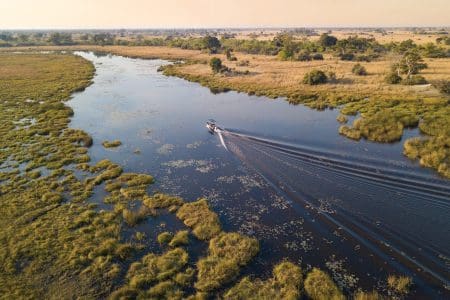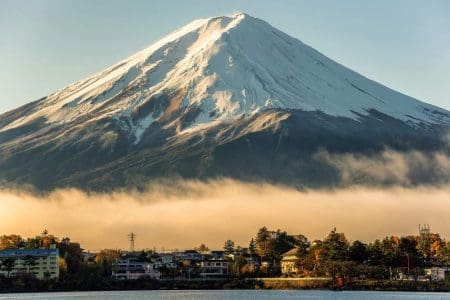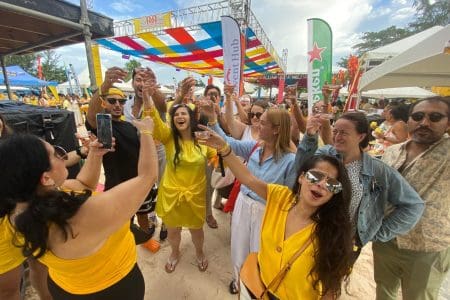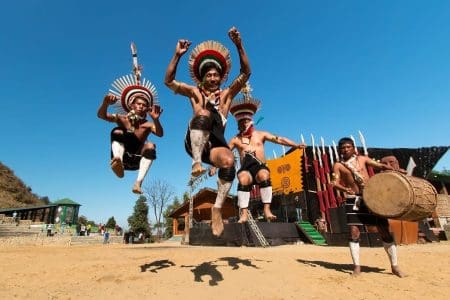Mark Bibby goes on a Sri Lanka safari, watches the most amazing festival and travels to the most beautiful city of Galle, before concluding his trip in Colombo.
Serendipity. The word conveys one – if not – the most important aspects of travelling. Being in the right place at the right time. Tissamaharama is the right place, and the Poson Festival is most definitely the right time.
Held during the June full moon, the festival celebrates the introduction of Buddhism to Sri Lanka in the third century BC. It is claimed that the Buddha came to Tissamaharama on his third visit to the island during which he consecrated the Tissamaharama Raja Maha Viharaya. This temple has the most amazing 156-foot high stupa that literally rises from the paddy fields. One of the holiest sites in Buddhism, it has stood largely in its current state since the second century BC.
Missed Elephants and Found Festivals
Earlier in the day, we weaved our way through the traffic of people celebrating the festival offering us gifts from our hotel the Jetwing Kaduruketha in Wellawaya. A beautiful resort it rests in acres of paddy fields, and affords great walking and bird watching opportunities. From here you can see the Ellewala Waterfall, the second highest in Sri Lanka.
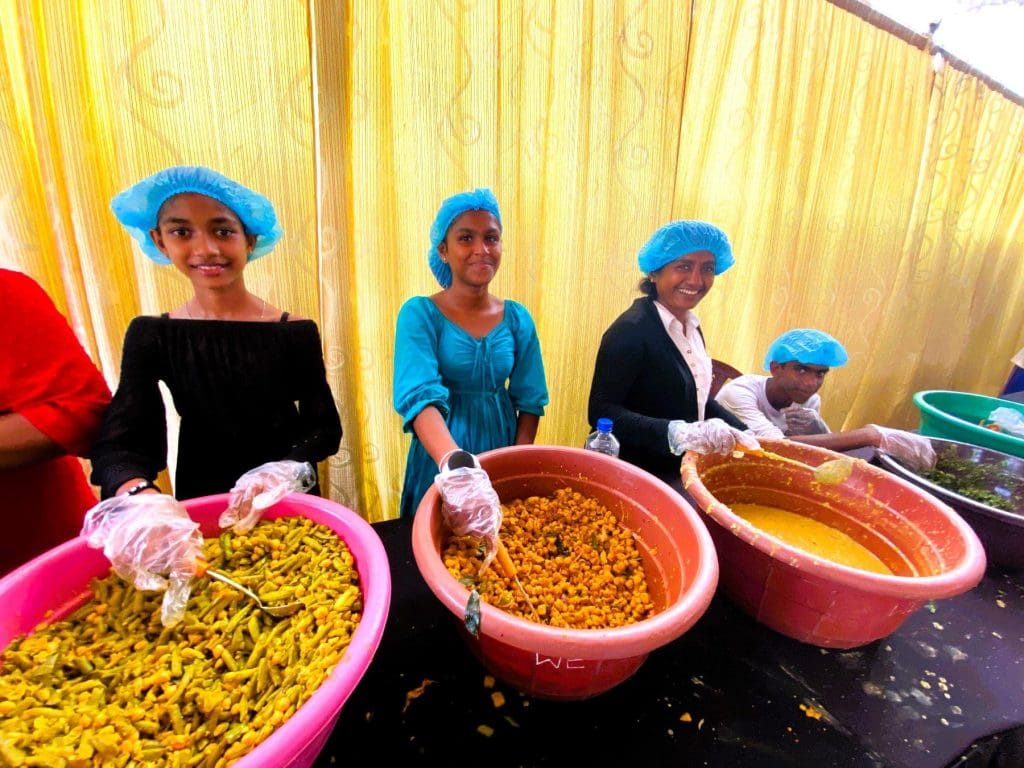
Our plan was to visit the Udawalawa Elephant Transit Home, which is an elephant orphanage funded by Born Free with 45 baby elephants. Unfortunately, due to the festive crowds we managed to miss feeding time by minutes. An opportunity lost but also one gained.
For the same crowds that had delayed our arrival at Udawalawa were waiting for us at Tissamaharama Raja Maha Viharaya. The community invited us to join them for lunch with thousands of people. We experienced genuine warmth and hospitality as we sat down in the marquees especially assembled for the occasion.
Expressing our thanks for their warm hospitality, we drove off to our new hotel the Hambantota Shangri La Resort, a few miles along the coast to relax beside the pool for we had a long night ahead of us.
Poson Festival : Tissamaharama Raja Maha Viharaya
The night starts with us driving back to Tissamaharama. The streets are crammed and we have to walk the last kilometre or so, as our minibus can go no further. Eventually we meet our hosts, and treated like VIPs, are escorted to our reserved area close to the temple.
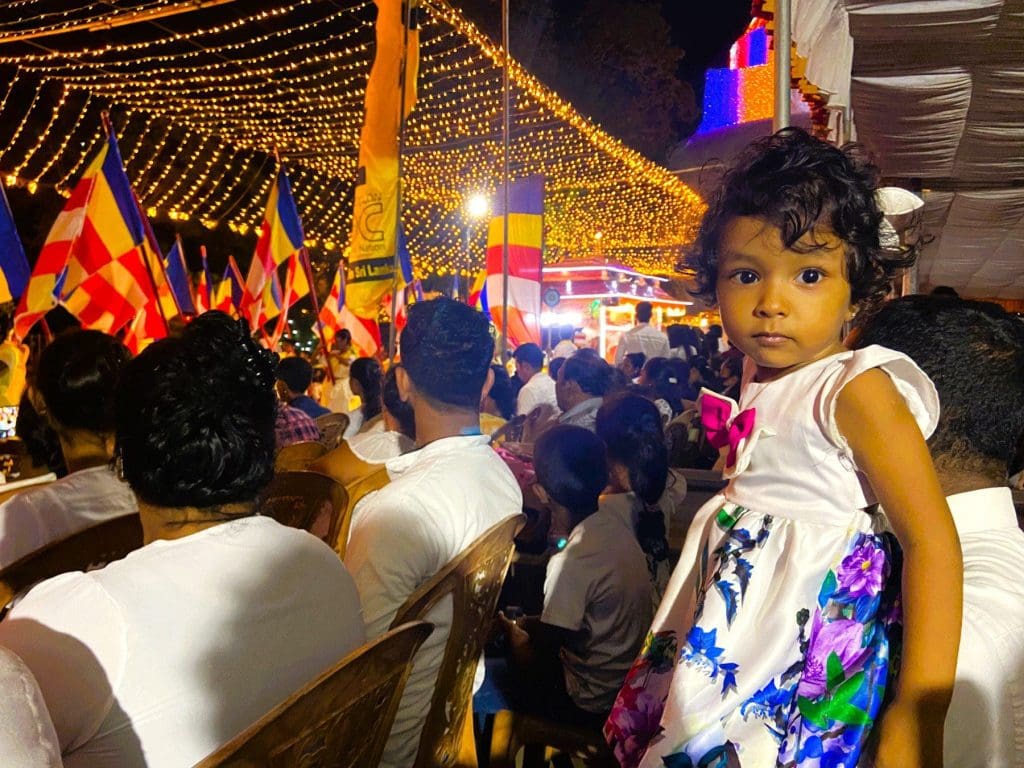
Shortly afterwards, as if they were awaiting our arrival, the procession commences. Colourful dancers, lots of fireworks and adorned elephants fill the main street, accompanied by loud music that continues into the night around the town.
It is bedazzling.
After a couple of hours, which fly by in seconds, the last of the procession passes us, and we walk towards the temple. It is now almost 11pm, and the procession will return around 3am, during which passage the streets will be gridlocked – we have time.
Ananagda, one of the monks at the temple takes us on a tour around the stupa, explaining that part of its significance is that it contains a relic of the Buddha – I believe just like in Kandy it is a tooth.
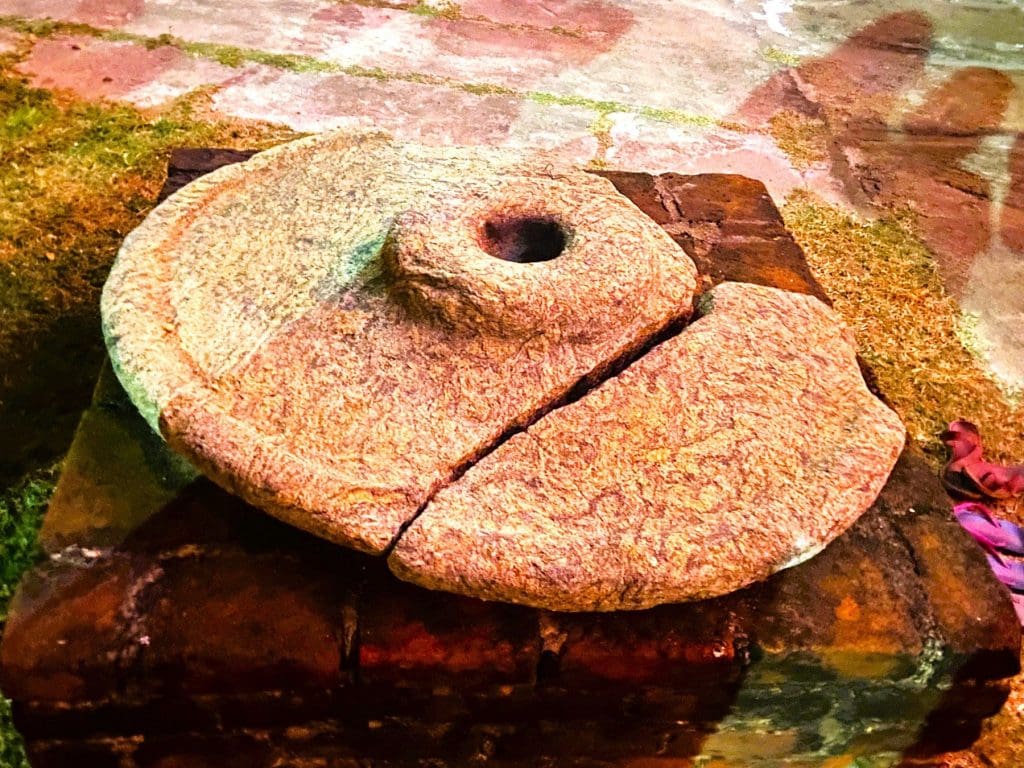
He explains there were 63 groups in the procession, including Buddhist monasteries from around Sri Lanka. Elephants play an important role in the country, both in its religion and its culture. Each pagoda has its own elephant, which the monks bring with them to the festival.
Although it pains me to see the elephants ridden and chained – to protect the spectators – during the procession, I realise this is neither time nor place for me to enter into such discussions with my generous host.
The stupa has been painted especially for the festival, and it appears as if new rather than 2,300 years old. Ananagda explains that the umbrellas around the temple are equally as old, as is the altar.
There is a tranquillity to our quiet stroll that contrasts with the frenzy that is consuming the rest of the town. Eventually, we receive the message that our mini-bus has navigated a way though the crowds, and we make our way back to our resort.
Sri Lanka Safari at Yala National Park
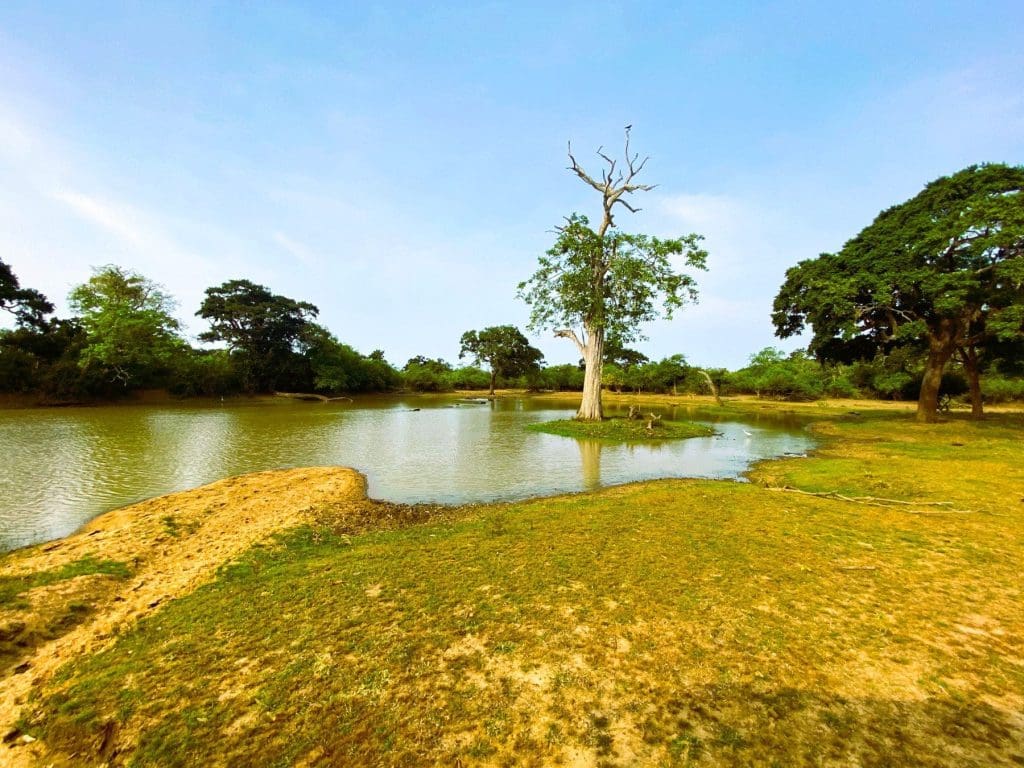
The following morning, we have an early start for our Sri Lanka safari. Our plan had been to visit Yala National Park the previous day, but the festival had intervened. Time is a flexible commodity in Sri Lanka, so it pays to be adaptable.
Instead, we head there before the sun rises, the sheets on my luxury bed hardly rumpled.
While the Minneriya National Park I visited at the start of my journey through Sri Lanka specialised in elephants, Yala National Park has a much more rounded list of animal attractions.
On the way along the now familiar road, we pass some crocodiles languishing in a stream. Then, we come across an elephant standing on the road, our driver keeps a safe distance to reassure the noble beast that we know he is the boss.
On our Yala Jeep Safari, we see the highly colouful jungle fowl (the national bird), spotted deer, a warthog and a wild boar wallowing in the mud. We also see numerous species of bird – apparently there are 200 varieties here – including the black-headed stork.
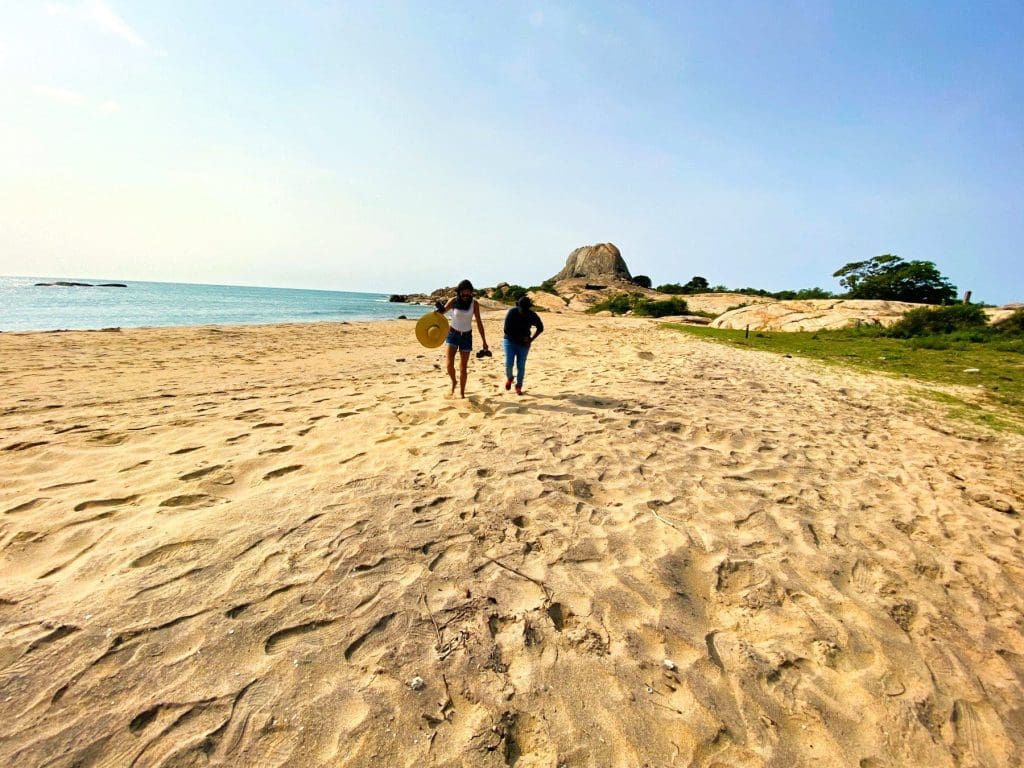
We pause at a pond where water buffalo laze in the waters while the lesser pied kingfisher dives in for fish. Spotted deer graze on the grass on its edge while hornbills and parakeets take it in turns to fly into the trees. It is yet another wonderful moment of tranquillity.
A few minutes later, we see a posse of jeeps crammed next to another pond. Across it, a leopard is relaxing in a tree – I can just make it out through my binoculars. Apparently, it has consumed a goat for breakfast and is taking its post-prandial rest. This is the only national park in Sri Lanka where you can see leopards. There are around 40 to 45 of them, so we are lucky.
It is our turn to feel peckish, so we drive to a beach within the national park, where we have our breakfast packed by the Hambantota Shangri La Resort, while our driver cum guide informs us how the area was devastated by the Boxing Day 2004 Tsunami.
Onwards to Galle
In the afternoon we drive along the coast to Galle, pausing briefly on the beautiful beach at Tangalle.
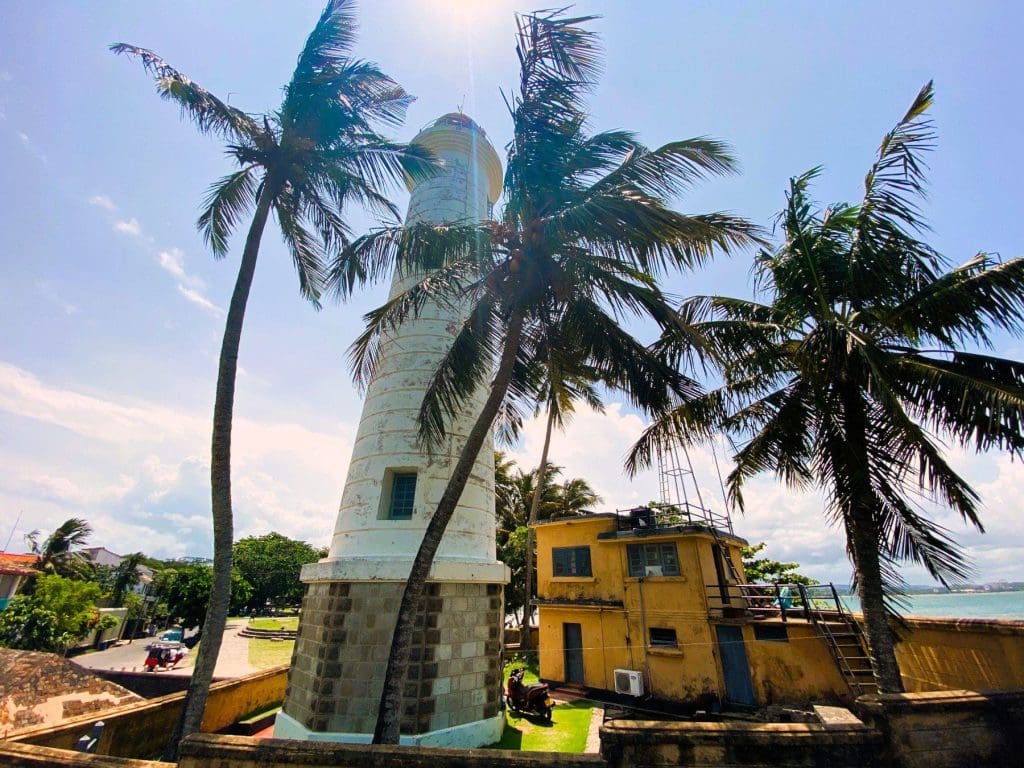
Arguably, Galle is the most beautiful city in Sri Lanka. On my previous visit to the country, I spent a couple of days strolling aimlessly around it, on this occasion with the sands of time slipping far too quickly I only have a couple of hours.
Galle, or Tarshish as it was formerly called, has been a major trading port since 1,400 BC.
Built during the Portuguese occupation of the country, the walled 16th century Old Town of Galle and its fortifications were inscribed as a Unesco World Heritage site in 1988, as “the best example of a fortified city built by Europeans in South and South-East Asia”.
After an impromptu fashion shoot, we walk through Galle Fort and along the sea walls to the Old Lighthouse, which was built in 1938. It is great to see the locals playing on the beach while the waves lap against the sea walls.
The previous evening, we checked into Tabula Rasa (see main image), a beautiful boutique hotel run by a Dutch couple, in the hills above Galle. It is an excellent place to chill and unwind after our lengthy day and night. The pool proves particularly popular.
We have a wonderful dinner, one of the best during the stay, while our hosts explain how difficult Covid proved for them, as well as its devastating effect upon the tourism industry in the country. With strong links with the local community, a great sustainability ethos, as well as quite outstanding views, Tabula Rasa really does deserve to flourish as the tourists return to this beautiful part of the island. It is an oasis of tranquillity.
Colombo in Half a Day
In many respects this would have been the perfect way to conclude our journey through Sri Lanka, but one more adventure – and surprise awaits us.
As our flight is due to depart from Colombo the following lunchtime, after our whirlwind tour of Galle we drive up the coast where we check into the Cinnamon Grand. Here, Mark Forbes meets us to lead us on a city walk of Colombo, which starts at the old Dutch hospital.
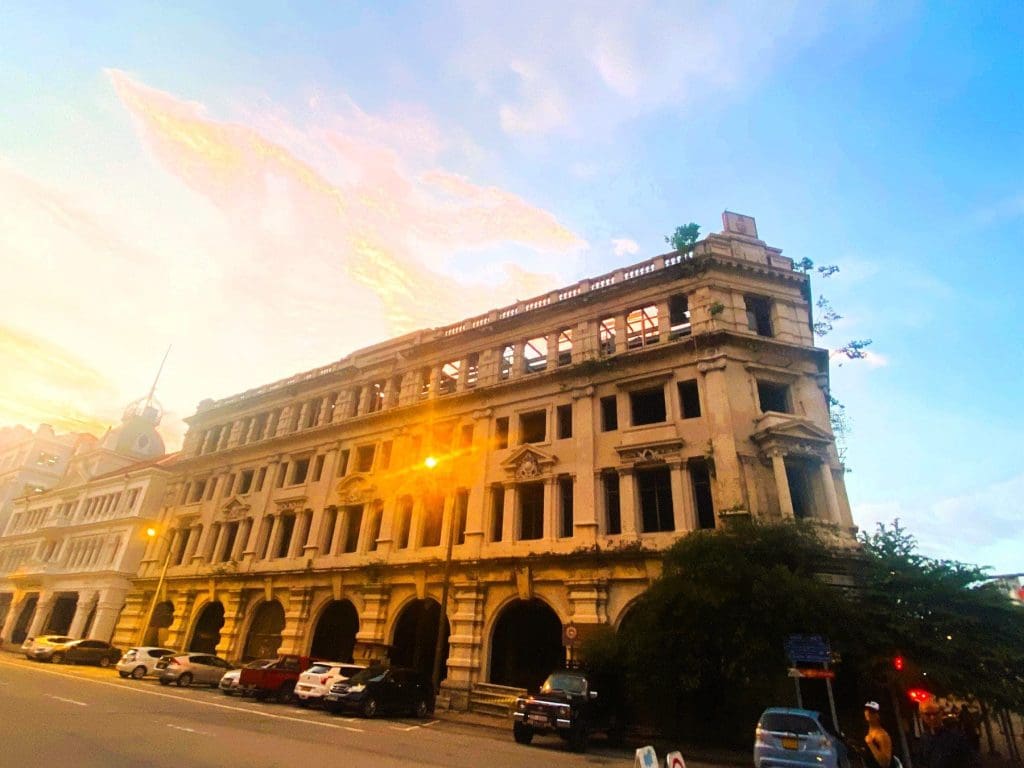
On my previous visit, I had been underwhelmed by the city, but Mark is an inspiring tour leader. His knowledge of and love for the city is infectious, and he imparts so much information in his brief tour of the architecture – and bars – of the city, concluding at the Grand Oriental Hotel next to the port, where Anton Chekhov once stayed.
It is here that my journey through Sri Lanka concludes, a few miles from where it had started in Negombo. My only regret is that I cannot return there, to continue on my journey as if a never-ending Joycean loop. After all, isn’t Sri Lanka timeless?
And who knows what experiences would await me there, in this most serendipitous of countries.
Getting to Sri Lanka
Mark was hosted on the trip by Visit Sri Lanka.
He flew from London Heathrow with Sri Lanka Airlines. He left his car at Heathrow width Holiday Extras using their Booking Meet & Greet Service, and using the Plaza Platinum Lounge.
Holiday Extras is the market leader in UK airport parking, hotels, lounges, and transfers – and last year most of their customers saved at least £100 on their airport parking vs the price they’d paid on the gate.
Booking Meet & Greet parking means you can enjoy more holiday with less hassle. Plus with Flextras, if you need to cancel or amend you can without charge. Ten days’ Meet and Greet parking at Heathrow T3 is available for £147, based on arrival on 12 October 2023. Entry to the Plaza Platinum airport lounge at Heathrow for two adult guests is available for £93. Based on entry on 12 October 2023.
For more information and to book, HolidayExtras.com or call 0800 316 5678.
All images by Mark Bibby Jackson.
